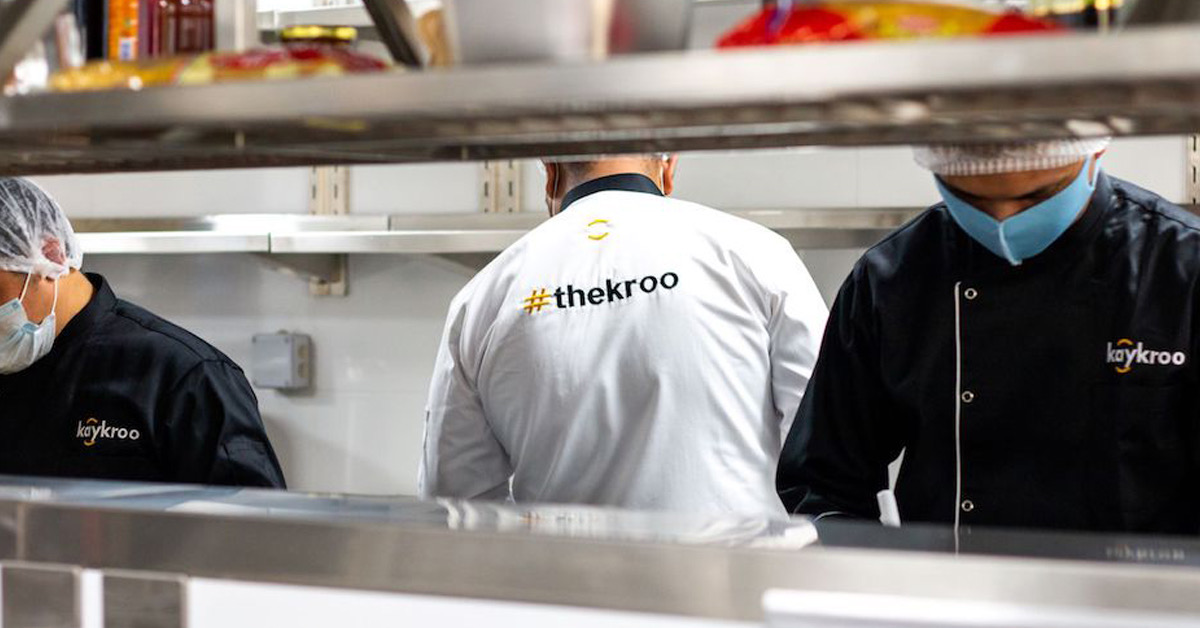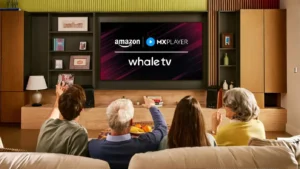UAE-based Kaykroo, on Tuesday, 13 October 2020, raised $4 million Pre-Series A funding and launched with 15 locations in the UAE. The funding round was led by various family offices in the UAE. The company is aiming to utilise the funds to expand into Saudi Arabia (KSA).
Launched by Jihad El-Eit, Kaykroo is the advancement of El-Eit’s Man’oushe Street chain of restaurants which are now converted to delivery-only kitchens that encompass several virtual restaurant brands including Bank Bank Chicken, Wrapped and Hummus Brothers.
Based on a statement by the company, Kaykroo has come as an effective redressal to the hindrance caused due to the COVID-19 pandemic in the restaurant and other forms of dine-in experiences. And in such a scenario, food delivery is the only yet effective option for the restaurant chains. According to Statista, the food delivery sector is set to be worth $4 billion by the end of this year.
El-Eit started his journey in the food sector back in 2010 with Man’ousche Street, a restaurant chain that grew to 30 locations across UAE, Saudi Arabia, Jordan, Oman, and Bahrain. And soon when the foodtech space started gaining momentum in the Middle East, El-Eit’s focus began shifting to food delivery. The company claims that food delivery helped scale its business to 80 percent, and that the company hopped onto the food delivery space prior to the pandemic. On similar lines, El-Eith in a statement said,
“I started seeing the direction globally going to cloud kitchens and last year I decided to really master the delivery operation,”
El-Eit decided to maximise the output of Man’oushe Street’s kitchens and utilise the space and manpower to cook foods for virtual restaurant brands that he has created. The produced items from several menus, in the same location, are sold on food ordering platforms like Deliveroo and Talabat. He launched several brands, experimenting with menus that specialise in a single cuisine and analysed customer feedback to determine their preferences. Today, the company has 10 virtual brands and a workforce of 400, including 100 delivery drivers.
“The requirement is to build a brand that builds appetite. You don’t want to create a master brand and then create sub brands and compromise on quality. Our essence is quality, value proposition and level of service. We always make sure when we talk about the brand, we talk about the full experience,” El-Eit added
Kaykroo claims that it has fulfilled 1 million orders since the beginning of 2020. Various other startups including Dubai’s Food to Go, Sweetheart Kitchen, iKcon, GrubTech and many more are also on track with a similar model.
Speaking of the unique propositions of Kaykroo, El-Eit said,
“You’re seeing a lot of people coming to the delivery cloud kitchen space, but our model is different. We have our own tech which helps us be ahead of the game. Algorithms gives us a head’s up in terms of customer preference and community preference. We track the behaviour of the consumer and the market trends and customise trends to adjust to the consumer’s needs. This is the beauty of virtual brands, we understand the market is changing and we can adapt, technology helps you to accelerate the process.”
Commenting on the technological perspective, El-Eit further added,
“With AI and machine learning, it allows us to really understand every single step of the process from the pre-ordering to the ordering. Knowing what you want, at what time, understanding your moods, behaviour, your order history, we can predict what you want, your diet. It gives us visibility. Every single tech between your hands today is all about psychology and understanding your behaviour whether it is Instagram or Facebook, but as much as we are a tech company, we are a food company and we want to make sure we are marrying these two.”
El-Eit also revealed that Kaykroo is still not giving up on the brick and mortar experiences, and weaving plans to launch a “digital food hall”, a physical location where customers can dine in and order any dish from their roster of virtual brands, something it defines as a “brick-and-Click” model. Jihad revealed that the first digital food hall will be launched in the Dubai Silicon Oasis in December this year with minimum staff and customers will be able to order using a digital interface.
“It is part of our strategy of building experiences. It helps to create awareness and is a bridge between the consumer and brand for longevity. The offline element is very important, look at all the trends happening worldwide with the big tech companies like Amazon, Apple, Microsoft, they’re building a very big portfolio of brands and to make sure you get the experience, they’re creating a physical location for you to get closer to the product and brand,” said El-Eit
Speaking from the revenue side, El-Eit said,
“You can survive and interact with a brand virtually, but it is important to give life in front of you in an economic way. Dine in customers spend more, but the delivery customer is more valuable if you succeed in retaining them, you will make more money in the long term.”
Other Cloud Kitchen developments
Dubai’s Sweetheart Kitchen last week announced $17.7 million funding round; iKcon announced $5 million funding in August; GrubTech, UAE’s SaaS platform for cloud kitchens announced $2 million in July; Dubai’s Kitopi announced $60 million fundraise in February; and not to forget CloudKitchens, a cloud kitchen platform started by ex-Uber CEO Travis Kalanick, back in November 2019 with initial funding from Saudi PIF.
According to Wamda, Majid Al Futtaim, developer of the Mall of Emirates is also projecting plans to launch a cloud kitchen platform.






